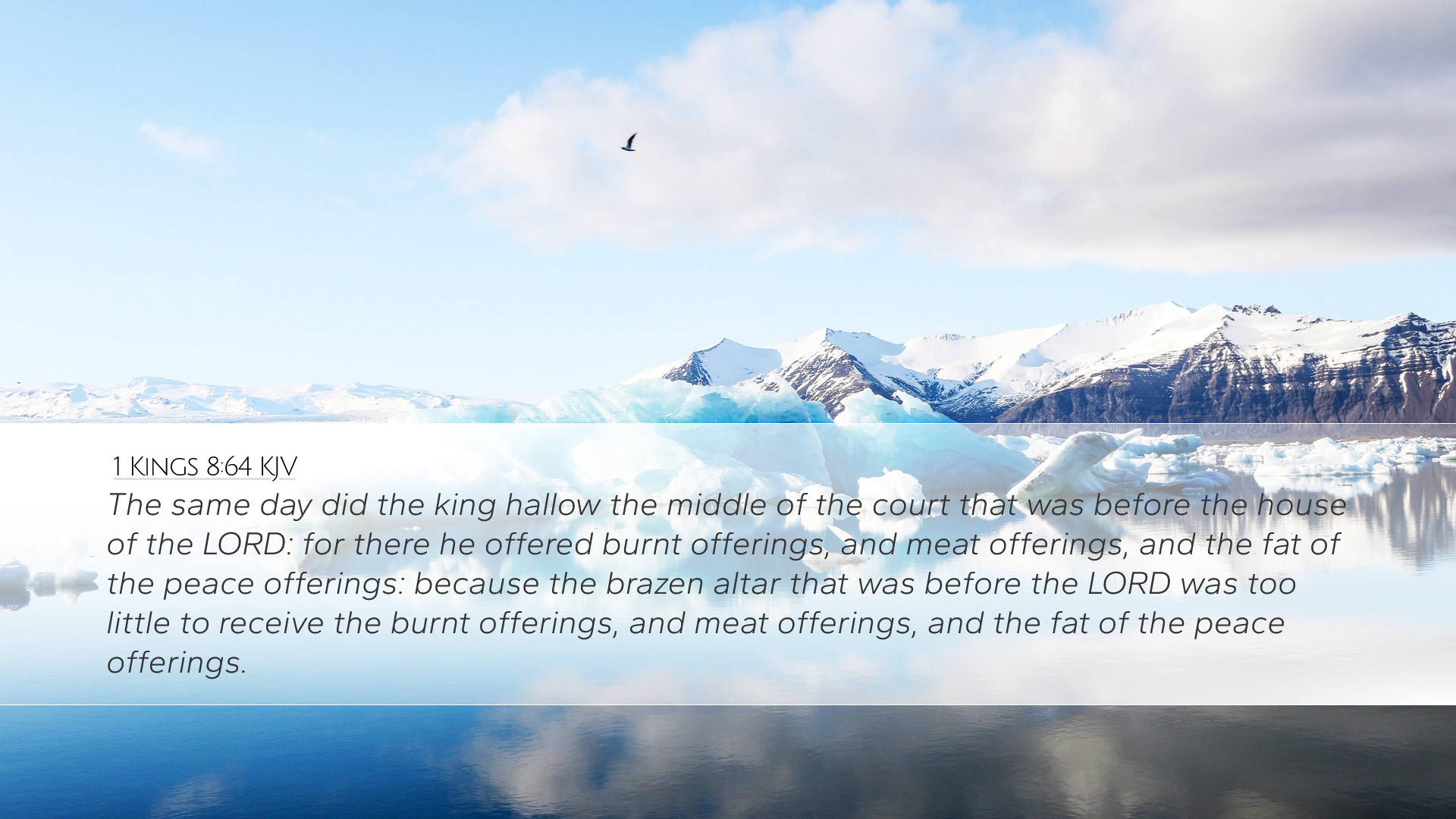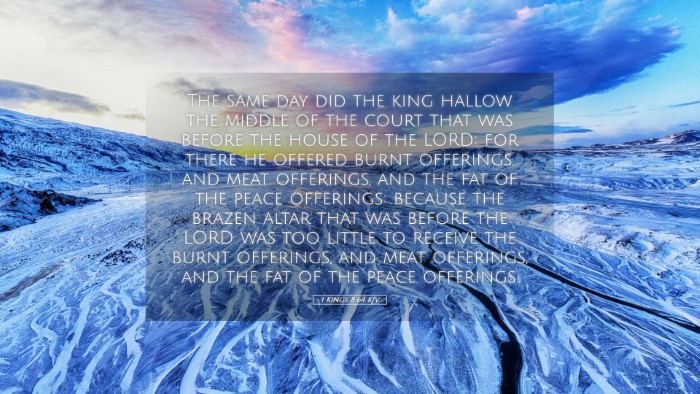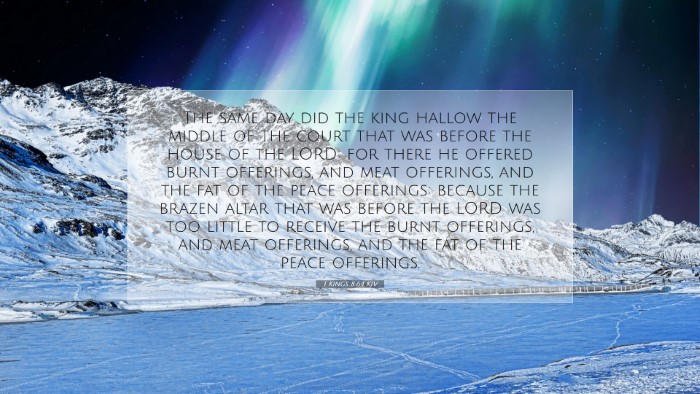Commentary on 1 Kings 8:64
Verse: "The same day did the king hallow the middle of the court that was before the house of the LORD: for there he offered burnt offerings, and meat offerings, and peace offerings, because the brasen altar that was before the LORD was too little to receive the burnt offerings, and meat offerings, and the fat of the peace offerings."
Introduction
This verse describes a significant moment in the dedication of Solomon's Temple, highlighting the king's devotion and the completeness of his service to the Lord. The actions taken on this day reflect the reverence and honor accorded to God, establishing not just a place of worship but also a ceremonial and communal means of approaching God.
Context of 1 Kings 8
The broader context of 1 Kings 8 provides insights into Solomon's dedication of the temple he built for the Lord, which was a pivotal event in Israel's history. It marks the transition from a portable tabernacle to a permanent structure designed for worship. Verses leading to 8:64 show Solomon's prayer of dedication and the assembly of Israel, emphasizing the theological underpinning of this rite.
Historical Significance
Matthew Henry notes that this event signals a key moment when Israel firmly recognizes God's dwelling among them. The temple serves as a physical representation of God's covenant with His people. By dedicating the temple, Solomon fulfills the promises made by David, establishing a heavenly connection characterized by divine presence and worship.
The Meaning of Hallowing
To "hallow" the court implies setting it apart as sacred space. The act of dedicating the area signifies the importance of consecration in the life of Israel. Albert Barnes expounds on this by suggesting that Solomon’s act reflects an understanding of the holiness required in the service of God. This is not merely about physical structure but the spiritual realities tied to worship.
Consecration of the Middle Court
Solomon’s choice to consecrate the middle of the court is significant. Adam Clarke remarks that this space, located before the temple, was a natural place for offerings due to its visibility and accessibility to the people. It symbolizes the idea that worship should be inclusive and communal, allowing all to witness and partake in the glory of God's offerings.
Types of Offerings
In this verse, Solomon offers burnt offerings, meat offerings, and peace offerings, which reflect various aspects of worship and community life.
- Burt Offerings: These offerings represent total dedication to God. They signify atonement for sin and the need for reconciliation with the Lord.
- Meat Offerings: Also known as grain offerings, these focus on the acknowledgment of God's provision. They reflect gratitude and a desire for relationship with God.
- Peace Offerings: These are offerings that accompany a feast, symbolizing fellowship and the joy of living in harmony with God.
Each offering carries its own meaning, yet collectively, they demonstrate the multifaceted nature of worship—recognizing God’s holiness, expressing gratitude, and fostering community.
The Insufficiency of the Brazen Altar
The text indicates that the brazen altar was insufficient for the offerings’ volume. This realization considers God's greatness and the need for adequate means to express devotion. Matthew Henry emphasizes how the enormity of the task at hand—the dedication and worship—demanded a response commensurate with God’s majesty.
Symbolism of the Altar
The brazen altar symbolizes judgment and sacrifice—the means by which humanity approaches a holy God. Clarke points out that the enormity of the fire kindled at this moment expresses the fervent devotion Solomon harbors for the Lord, urging congregants to recognize their need for continual sacrifice and offerings in their own lives.
Application for Today
This passage presents valuable lessons for contemporary believers:
- Importance of Preparing Sacred Spaces: Recognizing spaces for worship as consecrated environments that invite God’s presence is essential.
- The Role of Offerings: While the ritual may change, the spirit of worship through offerings remains vital—reflecting our gratitude, dedication, and reverence before God.
- Understanding Our Insufficiency: Believers are called to acknowledge their inadequacies in approaching God, realizing that Jesus fulfills those needs as the ultimate sacrifice.
Conclusion
1 Kings 8:64 illustrates a moment ripe with meaning for worship, commitment, and community. The dedication of Solomon's temple was more than a historical event; it was a profound declaration of God's covenant, emphasizing the need for proper approaches to divine worship. In light of this verse, worshippers today can glean insights into offering their lives and resources to God, reflecting reverence and authenticity in their faith journeys.


